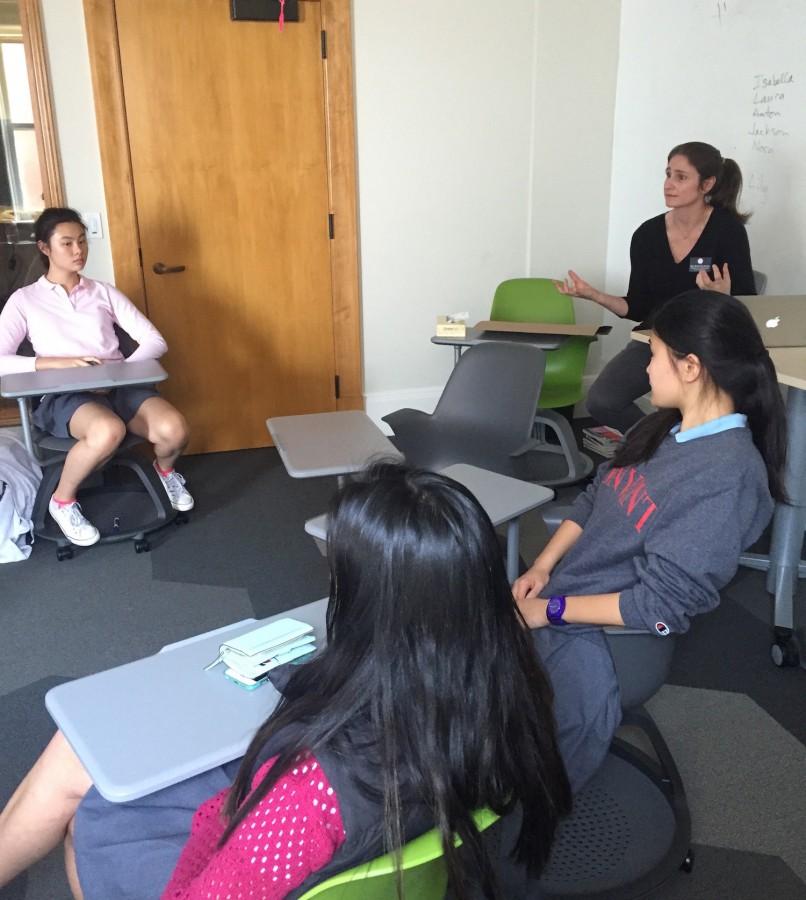Council created to benefit sports captains, teams
Newly created ‘Captains’ Council’ allows team captains to come together, discuss challenges that arise as seasons progress.
Athletic Director Elena DeSantis speaks to team captains during lunch.
March 15, 2016
Spring sports captains are learning and collaborating to promote leadership by strengthening themselves, their teammates and the games in a newly-created council.
“Captains’ Council is an opportunity for leaders of all sports to talk about issues and different techniques that we can use to become better captains,” varsity soccer co-captain Izzie Panasci said.
Teammates or coaches appoint athletes to be captains, according to Athletic Director Elena DeSantis.
“Some coaches explain what that means and some don’t,” DeSantis said about being a captain. “So, I said, ‘Let’s get everyone together and explain what it means to be captain and a leader.’”
Following a two-hour introductory meeting with Samantha Salvia of Positive Coaching Alliance, an organization with the goal of building strong characters for high school athletes, the council plans to discuss captains’ roles and the challenges they may face throughout the season.
“It’s not so much oriented on the winning aspect, but more on the idea that teamwork can thrive,” swim co-captain Bella Kearney said. “The meetings can be a reminder of what we learned and implement them directly to our sports.”
Captains are taught that teamwork brings success and is more important than scores throughout all sports.
“A lot of issues that happen in sports just come down to people and has less to do with the sport itself,” Panasci said. “A group of other people who have the same intentions for the season is helpful because they can offer a different perspective on problems that may come up.”
The council helps captains motivate and create a healthy environment for their team, according to DeSantis.
“I learned the importance of being a cohesive leader, really being there for your team and the power of positive encouragement rather than being a negative influence,” track and field co-captain Laurel Cinti said.
Each captain is working to set goals for the season, ranging from positivity and motivation among teammates to praising certain players at school assemblies.
“You’re the captain, so that means you’re probably a pretty motivated athlete,” Kearney said. “We learned about motivating and getting your other members of the the team to appreciate the sport, contribute to the sport, and try as hard as they can.”
If a team’s community is tight-knit, it will result in a more successful, energized team, according to the Panasci.
“I want to focus on support for each team member because it’s important in track and field,” Cinti said. “Most people think that the top athletes are more important than other athletes, but every single person that participates is just as important.”










